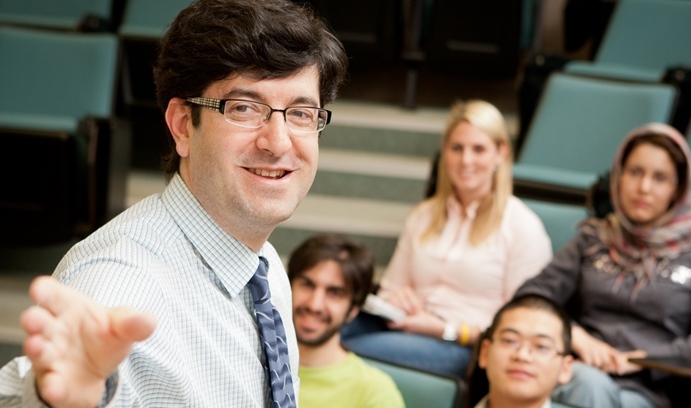Harnessing sensor power to monitor structures

Pakzad’s experience using sensors to monitor structures includes a pilot project that successfully deployed wireless sensor units on the Golden Gate Bridge.
Shamim Pakzad, an assistant professor of structural engineering in the department of civil and environmental engineering, has received a five-year CAREER Award from the National Science Foundation (NSF) to support his research on the development of mobile sensor technology for structural condition assessment.
Pakzad’s research aims to create an entire class of new methods for understanding how structural systems behave using mobile sensors to collect data. His CAREER project will focus on analytical models and experimental platforms for validation and verification that improve the safety and reliability of highway bridges.
Driving the data collection is a network built on the ubiquitous mobile devices of daily life. The same sensors that orient smartphones, tablets, GPS and their like connect a wide, dense measurement grid ideally suited for data mining. This revolution in electronic sensing technology has created unprecedented opportunities for gauging structural response and environmental conditions at rates, volumes and locations not possible before.
“Structural sensing used to be a very expensive and impractical thing to do. Now, not only do we have devices that we can build and design for this purpose, we have this untapped wealth of data that could be collected from devices we already have to add to our knowledge,” says Pakzad.
An expert in wireless sensing and structural health monitoring, Pakzad believes that the ability to identify the condition of structural systems in real time has far-reaching implications for society.
“Our communities need structures and systems that are more resilient to hazards, disruptive events, and the deterioration that occurs as a result of wear and tear,” he says. “The goal of my research through this CAREER project is to use the novel capabilities of mobile sensors to address those needs.”
Future engineers will also benefit from Pakzad’s CAREER award. Research outcomes of the project will be incorporated into a comprehensive educational plan for underclassmen and for students underrepresented in STEM (Science, Technology, Engineering and Mathematics) disciplines through two programs: a hands-on summer school in sensing and structural health monitoring, and project-based research at Lehigh for Pennsylvania community college students.
Photo by David W. Coulter
Posted on:

